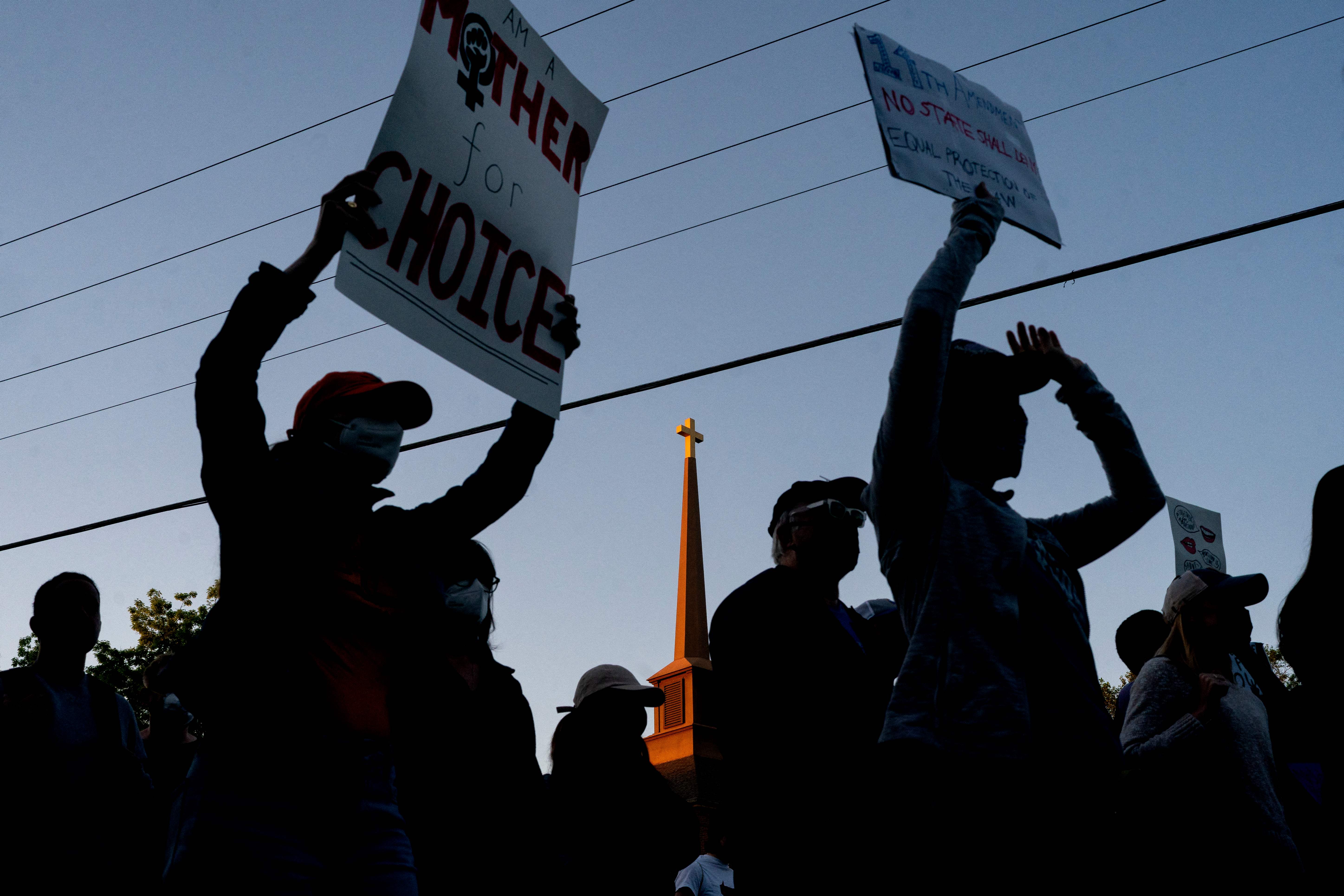What Alito hasn’t considered: Forced pregnancies will lead to job discrimination
Pregnant women already face a host of challenges at work – curbing women’s right to bodily autonomy will make things worse

Your support helps us to tell the story
From reproductive rights to climate change to Big Tech, The Independent is on the ground when the story is developing. Whether it's investigating the financials of Elon Musk's pro-Trump PAC or producing our latest documentary, 'The A Word', which shines a light on the American women fighting for reproductive rights, we know how important it is to parse out the facts from the messaging.
At such a critical moment in US history, we need reporters on the ground. Your donation allows us to keep sending journalists to speak to both sides of the story.
The Independent is trusted by Americans across the entire political spectrum. And unlike many other quality news outlets, we choose not to lock Americans out of our reporting and analysis with paywalls. We believe quality journalism should be available to everyone, paid for by those who can afford it.
Your support makes all the difference.Justice Samuel Alito’s leaked draft opinion reveals his inexcusable ignorance of the price women pay with each pregnancy they experience. While minimizing the physical, emotional and social concerns related to pregnancy, Alito also ignores the professional costs to women. He argues that women can more easily endure a forced pregnancy today because state and federal laws protect them from discrimination. But one should hope he understands that, just because something is illegal, doesn’t mean it never happens. As a professor specializing in gender and discrimination, I urge Alito and his allies to note the robust research showing that pregnant women are extremely vulnerable to job discrimination in spite of their legal protections.
Studies show that pregnant women are stereotyped as being less competent, less rational, and more emotional. They may also be negatively judged for pursuing careers when many think they should focus on their families. A classic study on pregnancy discrimination videotaped a woman doing the same work assignments both during and after her pregnancy. Viewers gave her lower job performance evaluations while pregnant, even though her execution of the assignments had been identical. More recent versions of this study have had women apply for jobs while, in approximately half of the instances, they wear a prosthetic making them appear pregnant. These studies show that the same women encountered more hostility and were less likely to be recommended for hiring when they appeared to be pregnant.
These findings explain why, in spite of existing legal protections, thousands of charges of pregnancy discrimination are brought to the US Equal Employment Opportunity Commission every year. Many of these cases against employers involve pregnant women being fired or denied promotions. While these numbers are concerning, they likely only represent a small fraction of the cases where discrimination occurs. In a 2017 study, in which pregnant women reported on work experiences over a three-week period, over 60% of participants reported experiencing discrimination within those three weeks.
While Alito chooses to not examine these risks, studies show pregnant employees are all too aware of them. Many agonize on how to share news of their pregnancies at work. Their efforts to conceal their pregnancies reflect a desire to reduce the risk of discrimination, but this concealment is also linked to increased psychological distress. Women also strive to demonstrate their continued competence to counter stereotypes. This can include taking on extra work and not asking for accommodations. One study even suggests pregnant women in physically demanding jobs risk injury at work when they fear being viewed as incompetent. Moreover, supportive policies and supervisors cannot completely resolve the problem, because women report feeling resentment from their co-workers who fear they will have to work harder to accommodate for the woman’s pregnancy.
The US Treasury Secretary, Janet Yellen, has expressed concerns that overturning Roe v Wade will undermine women’s professional progress and financial stability. Losing control over one’s reproductive life, she said, makes it harder for women to plan their careers and educations. What she did not explicitly note is that, because pregnant women are discriminated against in the workforce, this professional penalty remains even if a woman chooses adoption after birth. These costs are likely to be especially high for low-income women who experience greater stigma, will be less likely to access an out-of-state abortion and may have difficulty gaining the legal support they need to counter discrimination.
Every pregnancy is costly. There can be physical, emotional, social, and professional costs. These costs are reason for concern when a pregnancy is chosen. But when the reversal of Roe v Wade will lead to forced pregnancies, Justice Alito’s naïve take on the American pregnancy experience is shameful. If the Supreme Court wishes to curb women’s rights to bodily autonomy, they must acknowledge the vast range of sacrifices they are forcing women to make.
Join our commenting forum
Join thought-provoking conversations, follow other Independent readers and see their replies
Comments